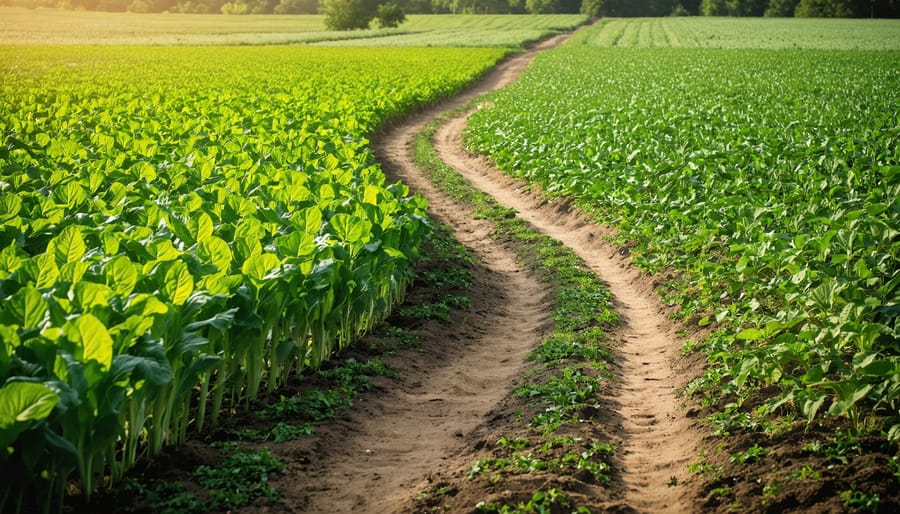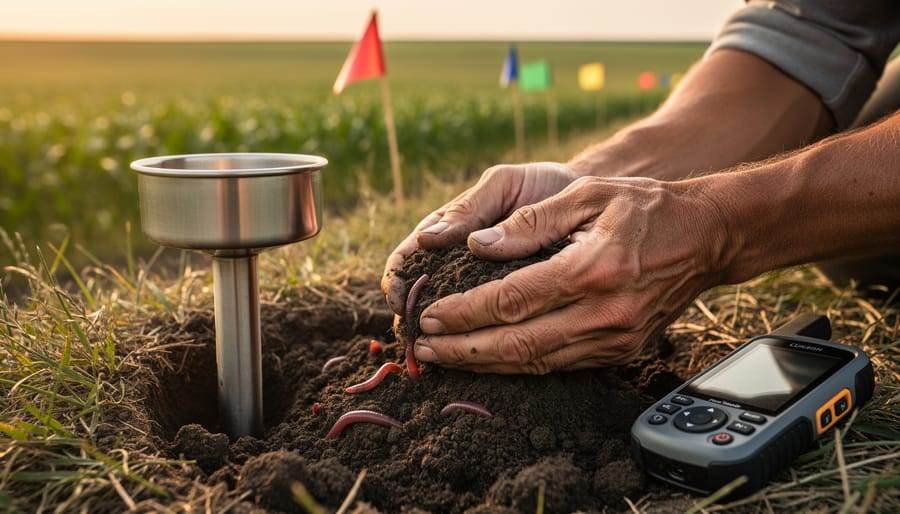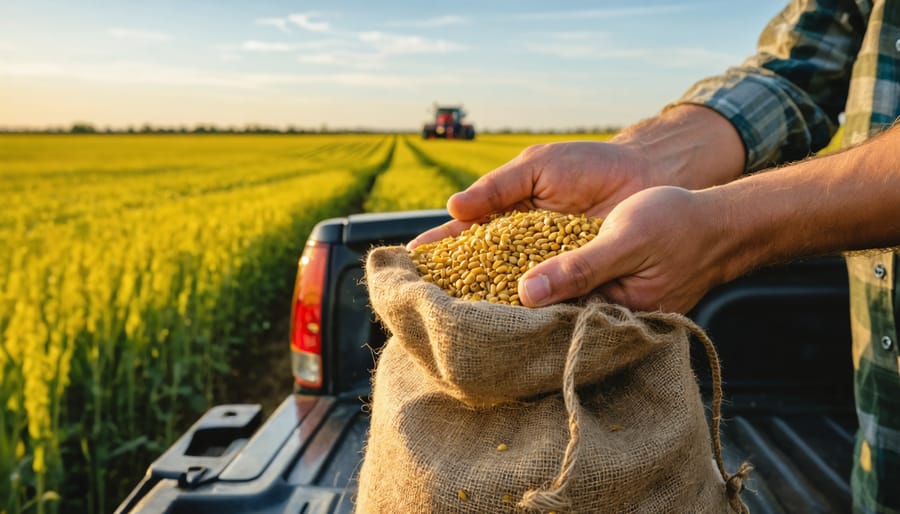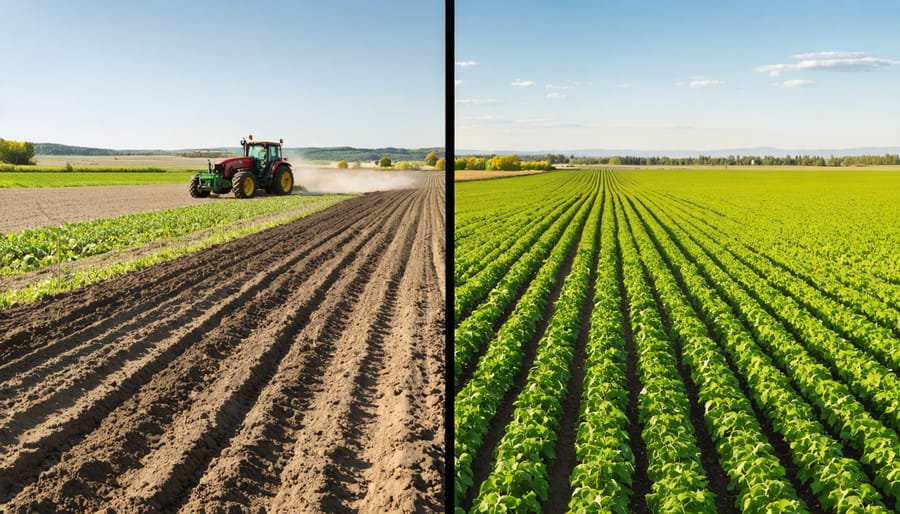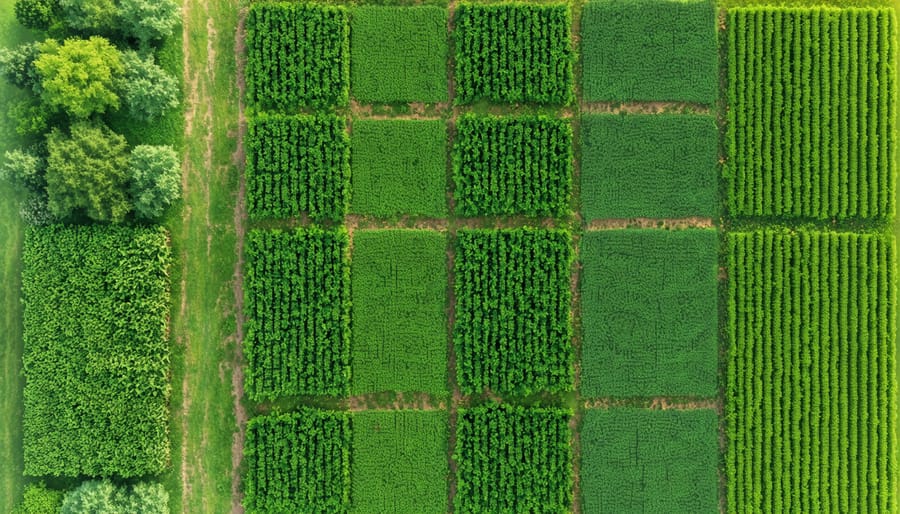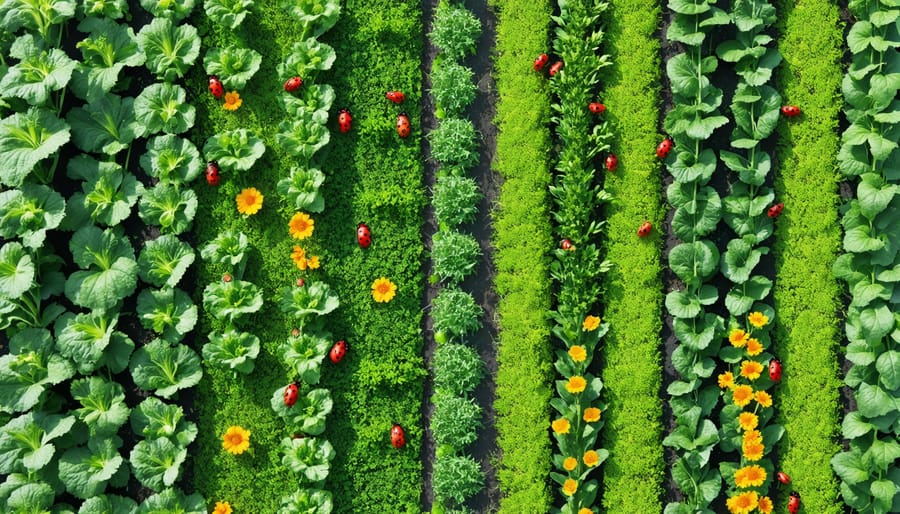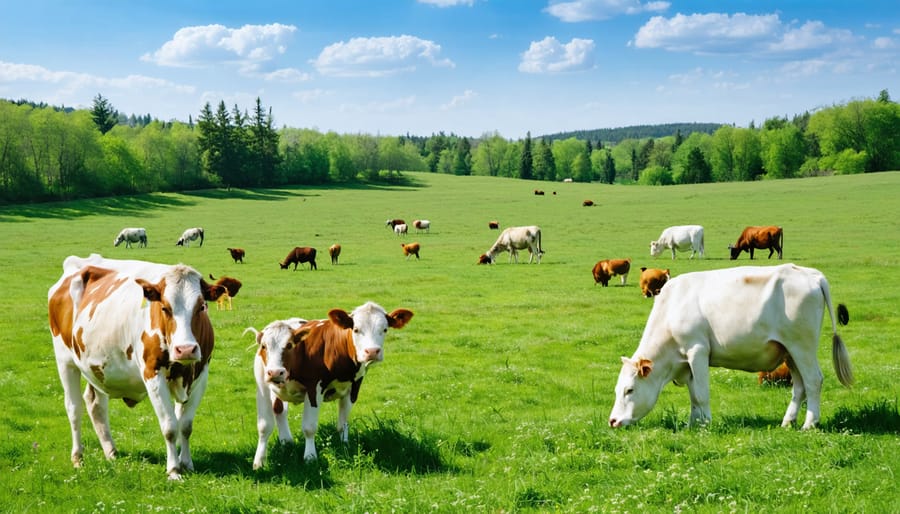Discover the power of organic certification and unlock new opportunities for your farm. Meeting rigorous organic standards demonstrates your commitment to sustainable practices, enhances consumer trust, and opens doors to premium markets. By undergoing the certification process, you gain a competitive edge and contribute to a healthier environment. Embrace the organic advantage and position your farm for long-term success in Alberta’s thriving agricultural community.
Understanding Organic Standards
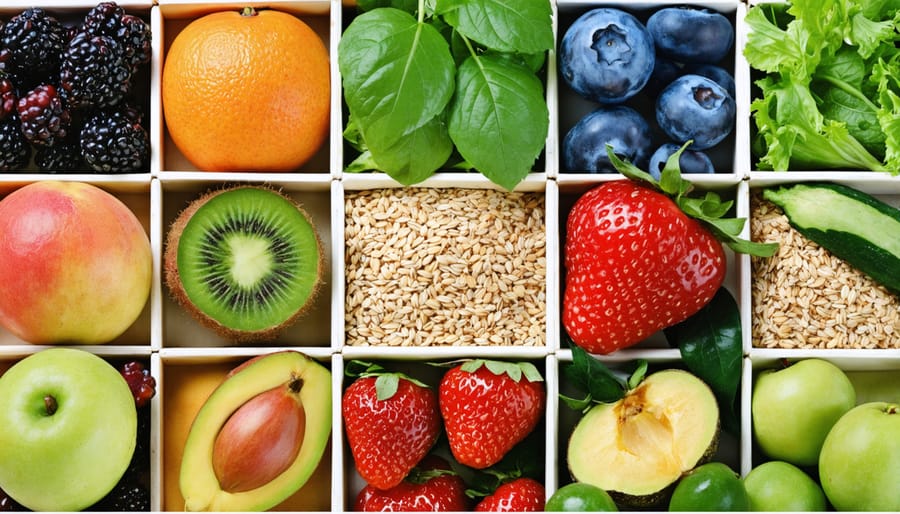
Canadian Organic Standards
The Canadian Organic Standards, regulated by the Canadian Food Inspection Agency (CFIA), provide a comprehensive framework for organic agricultural practices across the country. These standards cover all aspects of organic production, from soil management and animal welfare to processing and labeling. To be certified organic, farmers must adhere to strict guidelines that prohibit the use of synthetic fertilizers, pesticides, and genetically modified organisms (GMOs). Instead, they rely on natural methods like crop rotation, composting, and biological pest control to maintain soil health and crop vitality.
The standards also prioritize animal welfare, requiring that livestock have access to the outdoors, receive organic feed, and are raised without the routine use of antibiotics or growth hormones. Detailed record-keeping is essential for organic farmers to demonstrate compliance with the standards during annual inspections. By following these rigorous guidelines, Canadian organic farmers not only produce high-quality, sustainable food but also contribute to the preservation of biodiversity and the health of our ecosystems. As more consumers seek out organic products, these standards ensure that the integrity of the organic label is upheld from farm to table.
Permitted and Prohibited Substances
Organic standards dictate which substances are allowed and prohibited in organic production. In general, organic farming relies on natural inputs and avoids synthetic materials. Fertilizers derived from plant, animal, and mineral sources are permitted, such as compost, manure, bone meal, and rock phosphate. Biological pest control methods, including beneficial insects and Permitted and Prohibited Substances like neem oil and Bacillus thuringiensis (Bt), are used instead of synthetic pesticides. Genetically modified organisms (GMOs), sewage sludge, and irradiation are strictly prohibited. Some synthetic substances may be allowed if they are deemed essential and no natural alternatives exist. However, these exceptions are carefully evaluated and must not harm human health or the environment. By adhering to these standards, organic farmers work in harmony with natural systems to produce healthy crops while minimizing negative impacts on ecosystems.
The Certification Process
Choosing a Certifying Body
When selecting a certifying body, it’s essential to choose a reputable certifier recognized by the Canadian Food Inspection Agency (CFIA). Look for an organization with a proven track record of upholding organic standards and providing support throughout the certification process. Consider their experience working with farms similar to yours in size and type of production.
A good certifier will be transparent about their fees, inspection procedures, and timelines. They should offer clear communication and be readily available to answer your questions. Reach out to other organic farmers in your network for recommendations and insights into their experiences with different certifiers.
Ensure the certifier you choose is familiar with the specific organic standards relevant to your province and the Canadian Organic Regime. They should also have a deep understanding of your target markets, whether local, national, or international, to guide you in meeting the necessary requirements.

Application and Inspection
To obtain organic certification, farmers must submit an application detailing their operation, including farm maps, field histories, crop rotations, and pest management strategies. The Canadian Food Inspection Agency (CFIA) oversees this process, ensuring compliance with the Canadian Organic Standards. Once the paperwork is reviewed, an on-site inspection is scheduled.
During the inspection, a qualified inspector from a CFIA-accredited certification body assesses the farm’s practices, record-keeping, and adherence to organic standards. They may collect soil, water, or crop samples for testing. The inspector verifies that the farmer is implementing sustainable methods, such as crop rotation, cover cropping, and natural pest control, while avoiding prohibited substances like synthetic fertilizers and genetically modified organisms (GMOs).
After the inspection, the certification body reviews the inspector’s report and decides whether to grant organic certification. If approved, the farmer receives an organic certificate valid for one year. Annual inspections are required to maintain certification, ensuring ongoing compliance with organic standards.
Throughout the process, local organizations like the Organic Alberta association provide support and resources to help farmers navigate the certification requirements. By fostering a community of organic producers, these groups contribute to the growth of sustainable agriculture in the province.
Transition Period Requirements
To transition conventional land to organic status, farmers must follow a strict set of guidelines for a minimum of 36 months. During this time, they are required to implement organic practices and avoid the use of prohibited substances, such as synthetic fertilizers and pesticides. Farmers must also maintain detailed records documenting their adherence to organic standards throughout the transition period.
The process of converting land to organic involves adopting sustainable farming methods that prioritize soil health, biodiversity, and ecosystem balance. This may include practices like crop rotation, cover cropping, and the use of organic fertilizers like compost and green manure. By gradually transitioning conventional land and allowing the soil to recover from previous conventional practices, farmers can build a strong foundation for a successful organic operation.
While the transition period can be challenging, many Alberta farmers find the long-term benefits of organic certification to be well worth the effort. With proper planning and support from the organic farming community, the journey to organic can be a rewarding experience for both farmers and the environment.
Recordkeeping Essentials
Maintaining detailed records is critical for organic certification. Farmers must document all aspects of their operation, from seed sourcing and planting to pest control and harvesting. This includes keeping track of inputs like fertilizers and compost, as well as monitoring crop rotations and soil health. Accurate recordkeeping not only demonstrates compliance with organic standards but also helps farmers identify areas for improvement and optimize their practices. While it may seem daunting at first, establishing a robust recordkeeping system is essential for success in organic farming. Many Alberta-based organic farmers have found that dedicating time each day to updating records helps make the process more manageable and ensures a smooth certification experience.
Benefits of Organic Certification
Price Premiums and Market Access
Obtaining organic certification can lead to significant price premiums, as consumers are often willing to pay more for products they trust to be sustainably and ethically produced. A 2019 study by the Canada Organic Trade Association found that organic products command an average premium of 13-15% over conventional counterparts. Moreover, organic certification grants access to expanding markets, both domestically and internationally. Canada’s organic market has seen steady growth, reaching $6.9 billion in sales in 2020, while global demand continues to rise. By meeting rigorous standards, certified organic producers can tap into these lucrative opportunities and diversify their customer base.
Environmental Stewardship
Organic farming practices prioritize environmental stewardship by working in harmony with nature. By eschewing synthetic pesticides and fertilizers, organic methods foster healthier ecosystems that promotes biodiversity, supporting a wide array of beneficial insects, pollinators, and wildlife. Organic agriculture also emphasizes building and maintaining fertile, living soils through techniques like crop rotation, cover cropping, and composting. These practices enhance soil structure, reduce erosion, and sequester carbon, contributing to the long-term sustainability and resilience of our agricultural landscapes. By embracing organic standards, farmers become responsible stewards of the land, preserving it for future generations while producing wholesome, nutrient-dense food.
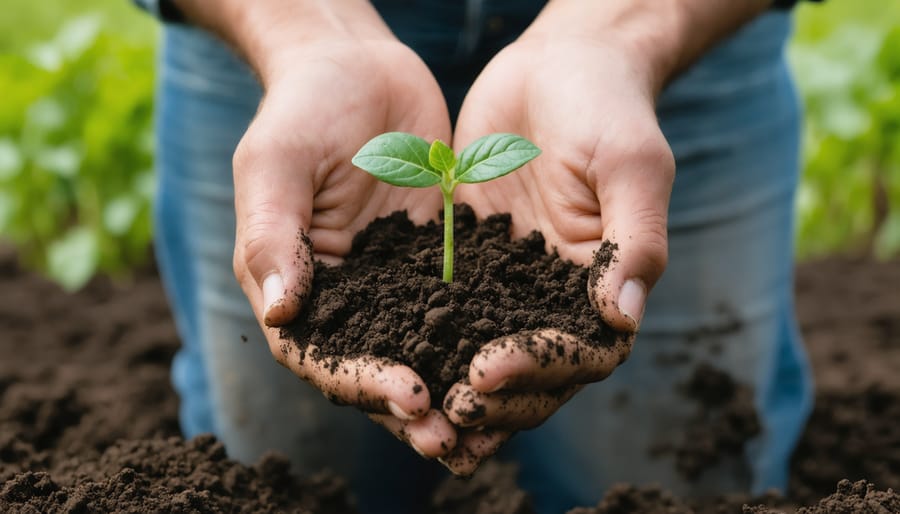
Conclusion
Organic certification is a valuable tool for farmers looking to demonstrate their commitment to sustainable agriculture and access new markets. By following organic standards, you can enhance soil health, biodiversity, and animal welfare while meeting the growing consumer demand for organic products. Embarking on the organic certification journey may seem daunting at first, but with the right resources and support, you can successfully navigate the process and reap the rewards.
As you consider organic certification for your farm, remember that you are not alone. Connect with local organic farming organizations, attend workshops and conferences, and seek guidance from experienced organic farmers in your community. The Canadian Organic Growers (COG) and the Organic Agriculture Centre of Canada (OACC) offer a wealth of information and resources to help you get started.
By choosing organic certification, you are not only investing in the long-term sustainability of your farm but also contributing to a healthier environment and a more resilient food system. Take the first step today and explore how organic certification can benefit your farm, your family, and your community. Together, we can build a thriving organic agriculture sector in Alberta and across Canada.

